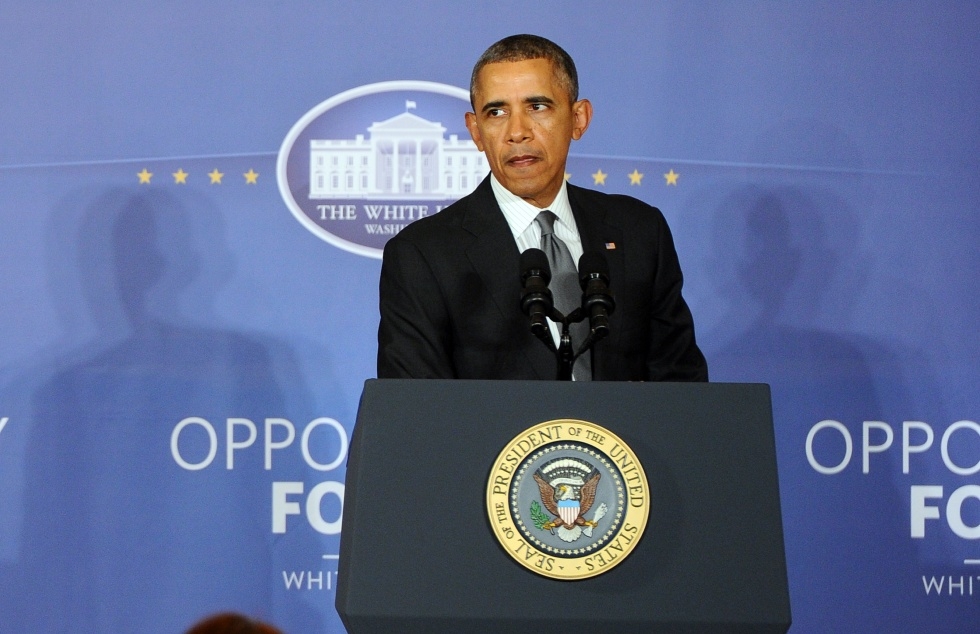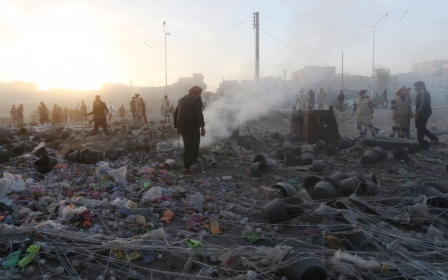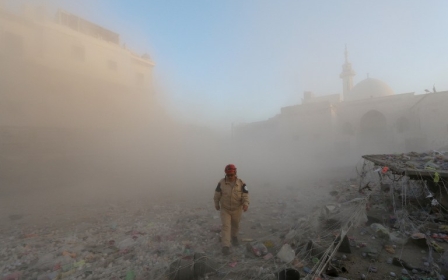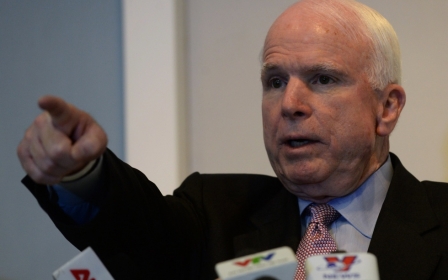Obama’s legacy of indecision in the Middle East

Barack Obama is in the legacy stage of his time in office. Like leaders before him, he is looking for a suitable monument to cap eight years in the White House. Some will argue that the defining moment of his presidency is Obamacare, while others may point to the termination - with extreme prejudice - of the terrorist career of Osama bin Laden.
But I would say that Obama’s legacy, and a rather wretched one it will be, is Iraq and Syria. Just as Tony Blair will never escape from his reckless decision to back America in the war that toppled Saddam Hussein, so will Barack Obama be judged by his dithering indecision - first in Syria and now in Iraq.
Had the president chosen to intervene against Bashar al-Assad sooner even than his infamous 2012 red line debacle over Assad’s use of chemical weapons, than perhaps the narrative would be different.
Had he been less willing to, in effect, contract out American foreign policy in the Middle East to the Qataris who were busy arming Islamists in Libya and Syria while reassuring the president that they could do a makeover of the Muslim Brotherhood in Egypt, than perhaps his legacy would have been less tarnished.
But this is a president who simply dithers while the region burns. He delegates when he should deliver. And nowhere has this been more damaging than in the current battle against the so-called Islamic State (IS).
As Mr. Obama surveyed the wreckage of last week's mid-term rout at the hands of the Republicans, he may perhaps have been diverted from dwelling on that disaster by a hefty fight brewing between his National Security Advisor, Susan Rice and the Pentagon.
Top generals have described her as “manic and obsessed with the tiniest details,” and are deeply frustrated by the constraints the White House has placed on them in the fight against IS - all of which is shorthand for saying that the generals think neither she nor the president have the foggiest idea about what to do with the IS threat.
And in an eerie replay of Vietnam, the war that has scarred America forever, the president has announced that 1500 more “non-combat advisers” are heading to Iraq. That is on top of the 1600 already in place. The aim is to get the Iraqi army up to snuff to fight the jihadists - precisely the strategy the Americans used in the early days of the Vietnam War. It didn’t work then and it is unlikely to work now in Iraq.
And what about Syria? It will take months, if not years, to create a rebel army that does not share the ideological fanaticism of IS or the Al-Nusrah Front. And even if that army does come into being, the leadership of the non-jihadist rebel movement in Syria is so fractured as to be virtually beyond repair.
Meanwhile the clock ticks loudly away, with hundreds, if not thousands of foreign fighters flocking under the banner of IS with every month that passes. And when they arrive, they find a coherent military structure driving forward a well thought-through and lethally simple battlefield strategy. They are quickly trained-up into what Lawrence of Arabia described in The Seven Pillars of Wisdom as the ideal fighting force - highly mobile and motivated by a fanatical belief, one they are willing and eager to die for. Contrast that with the poorly led, confused and demoralised Iraqi army and you see the enormity of the task ahead.
But the job has been made infinitely more difficult, thanks largely to Obama’s almost pathological tendency to hesitate. In committing to the defence of the Syrian city of Kobane, for example, he sent the warplanes in, only just before it would have fallen. And as he did so, IS exploited the fact that the coalition air war is not sufficiently resourced. The focus on Kobane created opportunities in Iraq that Abu Bakr al-Baghdadi was quick to seize.
Obama may have hoped to add the scalp of al-Baghdadi to his trophy room of terminated jihadists, but rumours of the self-proclaimed caliph’s death appear to be greatly exaggerated. So, the war that Barack Obama studiously avoids calling a war, stutters on. And his promise of a fresh relationship with the Arab world retreats further and further into the distance.
On 4 June 2009, in Cairo, Barack Obama made direct reference to his own Muslim heritage. He spoke of a “new beginning” in relations between America and the Middle East. He raised great expectations in what was a moving and powerful speech.
But he has failed to deliver on those expectations. He hasn’t as the Americans like to say “walked the talk.” The rhetoric has ultimately proved empty and ensured that his will be a legacy defined by failure in the one region of the world where he might just have left a positive mark.
- Bill Law is a Sony award-winning journalist. He joined the BBC in 1995 and since 2002 has reported extensively from the Middle East. He has travelled to the Kingdom of Saudi Arabia many times. In 2003 he was one of the first journalists to cover the beginnings of the insurgency that engulfed Iraq. His documentary The Gulf: Armed & Dangerous which aired in late 2010 anticipated the revolutions that became the Arab Spring. He then covered the uprisings in Egypt, Libya and Bahrain. He has also reported from Afghanistan and Pakistan. Before leaving the BBC in April 2014, Mr Law was the corporation’s Gulf analyst. He now works as a freelance journalist focusing on the Gulf.
The views expressed in this article belong to the author and do not necessarily reflect the editorial policy of Middle East Eye.
Photo: US President Barack Obama in the East Room at the White House in Washington on 25 February (AFP)
New MEE newsletter: Jerusalem Dispatch
Sign up to get the latest insights and analysis on Israel-Palestine, alongside Turkey Unpacked and other MEE newsletters
Middle East Eye delivers independent and unrivalled coverage and analysis of the Middle East, North Africa and beyond. To learn more about republishing this content and the associated fees, please fill out this form. More about MEE can be found here.





